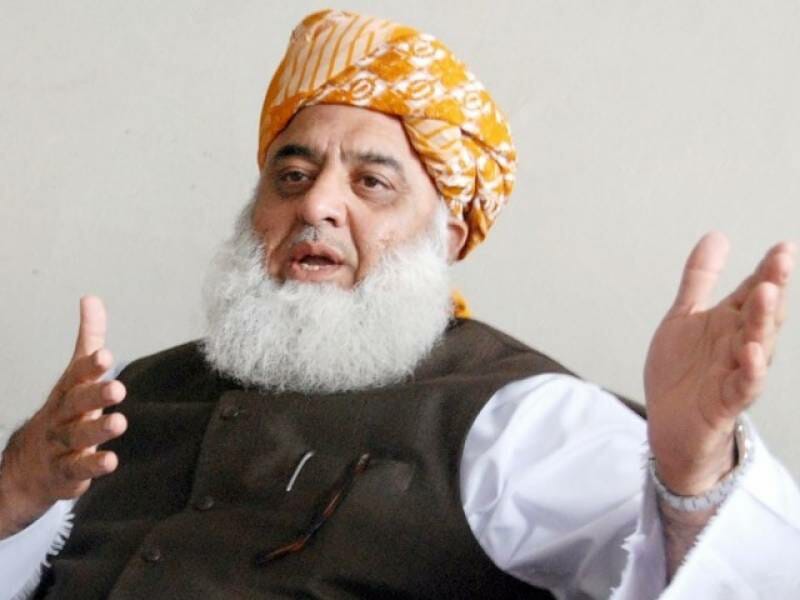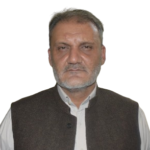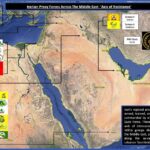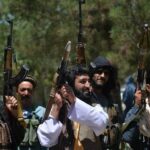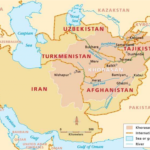Cicero, the Roman philosopher, politician and lawyer, once said:
“So great is the power of Rome that any citizens harmed, or judged by anyone other than Caesar, would face the full strength of the Roman Empire. Granted, those who witnessed this power are no longer with us, but the history has lived on in the words they spoke. These have inspired men for generations to something greater.”
Cicero spoke of the guaranteed privileges and rights that were observed and protected by the Roman government for those who understood their obligations as citizens of the Empire. Most from our parents’ generation will recall a day in 1963, when President John F. Kennedy stood at the Brandenburg Gate in Berlin declaring:
“Two thousand years ago, the proudest boast was ‘civis Romanus sum.’ I am a Roman citizen.”
These are the actions and behaviors of great Empires and nation states, but Pakistan is not a great nation state. No, we are barely a nation when we look at things from the perspective of an outsider to our citizenry, if I may call it that.
The world may like to call us Pakistanis, but there are few within the borders of this country that identify themselves by that moniker. No, many of our citizens are ashamed to call themselves Pakistani and that is where the problems of this nation start and end.
I’ll start by explaining how the nations we aspire to be behave to give you a better understanding of why we have problems here. In the United States, there may be fifty states, but when it comes to decision that affect the entire nation, they are all Americans. This is true in the United Kingdom as well, even though there have been many wars between the nation states of Scotland, Ireland and England. Each nation within the United Kingdom stands together when it comes to national interest. I’ll come closer to our own neighbor, India. There are 29 states and 7 unions within the Indian border, but when it comes to a time of national interest, everything is put aside and the nation stands together as Indians.
And then we have Pakistan.
Pakistan is a divided nation to say the least. We are divided on ethnic, linguistic, political, religious, education and provincial lines. We gather together under different political flags. We pray in masjids that are 100 feet from each other because of slight differences in the way we practice Islam. We identify with the cities that we reside in and the educational institutions that we graduated from. We are incestuous in our affiliations and unwilling to accept outsiders because they don’t share our ideologies.
When this is the Pakistan that we live in, how do we come together in a time of war, social injustice or national interest?
The last month gave us clear examples of how divided this nation really is. From the vote in the National Assembly for amendments to the Constitution and Army Act to the civil society rally for the martyrs of the Army Public School massacre, we were unable to find a way to stand together as one nation, under one flag, for one cause.
Let’s start with terrorism. While all the political parties stood together in Peshawar and agreed to a firm stance against the terrorists, when the All Parties Conference was gathered in Islamabad, the position of every party has shifted, for lack of better word, from its original support. The politicians wanted protection from being targeted by the military and law enforcement agencies for their involvement in acts of terror. And let’s be clear here, an act of terror is anything that is intimidation, force or violence against another to gain a benefit for themselves. So that would mean target killing, bhatta, gang violence, targeting religious sects, armed assaults, explosive materials and hate speech would all fall under the acts of terror. We can understand why the politicians wanted to protect themselves, can’t we?
The religious groups wanted to protect their own affiliations with the extremist groups, madrasahs and masjids. We all remember the famous press conference where Maulana Fazal-ur-Rehman screamed, wailed and beat his chest, demanding to know which terrorists had come from the madrasah system. Forgetting that Baitullah Mehsud, Hakeemullah Mehsud, the GHQ attackers, Maulana Radio and many others are all products of the madrasah system that Maulana Diesel couldn’t understand being targeted. Then, he said the unthinkable, in my opinion, he tried to say that those who attacked Army Public School in Peshawar were not even Muslims, much less products of the madrasah system. Flashback to the video of Maulana Radio clearly stating that the TTP has launched the attack on the school, that they had provided operational support once the terrorists were inside the school and that there would be more such attacks. No, Maulana… they didn’t come from the madrasah system, nor were they Muslims.
And we are expected to be unified behind the armed forces as they wage war against the terrorists, financiers, supporters and apologists, when we can’t even be unified in the debate over who should be targeted or considered terrorists.
When the vote came in the Parliament, after all the political parties’ objections and considerations had been incorporated, we found that again we were divided over the issue of military courts. I will never forget the tearful apology from Raza Rabbani that he had “voted against his conscience.” I will never forget that Jamaat Islami, Jamaat-ulema-Islam (Fazl-ur-Rehman) and the Pakistan Tehrik-e-Insaaf abstained from the vote. When the nation needed to stand together, we still stood miles apart.
But we are supposed to stand together in the fight against terrorism?
And then came the one-month anniversary of the massacre at Army Public School. Rallies organized around the country through the hard work and dedication of Jibran Nasir were sabotaged by the political parties wanting to demonstrate their affinity to the grief the nation felt. In Karachi and Lahore, there were dueling rallies.
Karachi saw the civil society rally invaded by the Pakistan People’s Party with their political flags and chants of “Jiyo Bhutto.” One person from the PPP said in a Facebook page dedicated to the organization of the rally, that civil society couldn’t stop those who wanted to chant in favor of Bhutto and carry placards with Benazir’s photo on them. He said, “we should be pleased that they increased our numbers.” What he didn’t want to admit was that as elected officials, their responsibility was to stand on the floor of the provincial and national assemblies demanding the arrest of those who carried out the attacks, and demanding the arrest of those who were justifying the attacks through hate speech against others.
Lahore was a different scene all together. With two rallies, Charring Cross and Liberty Roundabout, there were all scopes of ideologies and political affiliations on display. From the communists that were against the army to the political parties and their flags held high, you wondered what happened to Pakistan’s moment of mourning for the 150 people who lost their lives that day in Peshawar. The result, many people who wanted to join the mourning left because they would not stand with those who are protecting the terrorists from the law enforcement agencies.
But we are all expected to stand together in the fight against terrorism and it’s ideology.
Since I am on the topic of political parties, may I ask why they need to have flags of their own? I grew up in the United States with the Democrats and Republicans; they never had flags to identify themselves. They stood under the American stars and stripes. I lived in London with the Conservatives and Liberals, who also didn’t have their own flags for identification. They stood under St. George or the Union Jack. Even next door in India, there is one flag, the Indian flag that is the identity of the nation.
In Pakistan, we are more interested in showing off our political affiliations than we are standing together under the national flag. Government ministers fly the national flag one side of their vehicle and their political flag on the other.
And please don’t tell me that they have the right to display their flags. We don’t have passports or CNIC cards that identify us as PTI, PPP, PML-N, ANP or any other identity other than Pakistan. They exist because this nation exists, but their flag is more important that our flag. But this should never come as a surprise to anyone who listens to them speak.
Turn on your television and listen to how they talk about Pakistan. They don’t say “hamara Pakistan (our Pakistan),” no; they say “aap ka Pakistan (your Pakistan).” Why are my tax payments being used to pay people who don’t even accept themselves as Pakistanis and citizens of this country? How are they being allowed to represent my interests in the parliament when they don’t accept themselves as part of this country? Well, it’s quite simple. The Pakistan they live in isn’t the same Pakistan we live in.
Their Pakistan has uninterrupted electricity. Their Pakistan has excellent police protection. Their Pakistan guarantees them access to the best health care whether in Pakistan or outside of it. Their Pakistan assures that what they want is done 1,000 times faster than is done for the Pakistani that pays their salary. That is why they say “aap ka” and not “hamara,” because they are not from our Pakistan where petrol is unavailable, gas is short, electricity comes and goes as the government feels. Our Pakistan doesn’t have police protection, proper health care, or an equitable educational system.
Yes, I understand the difference between “aap ka Pakistan” and “hamara Pakistan.” Yes, I understand. Do you?
In a nation that stands diametrically opposed to anything that serves that national interest, we are unable to be proud Pakistanis. We are unable to stand together and be Muslims, without the differences of 100 feet.
So how do we make national decisions as independent groups of individuals?
I tell you all of this because our enemy is not divided. They are not confused about their ideology or mission. They stand under one black flag that the world recognizes as the mark of a terrorist organization. They stand together with one goal – to take over Pakistan so that they can implement their version of Islam and Sharia and teach us a lesson that we will never be able to forget. Nor will be able to dislodge them from government once they are there.
When will we learn to stand together for the sake of the nation, for the sake of our generation, to respect the sacrifices of our elders and the future of our future generations?
One of my favorite books growing up was Charles Dickens’ Great Expectations. If you haven’t read it, you are missing a great book and story. There’s a line in the book that fits what my article today and I do hope that it makes you think about where we are and where we are headed.
“It is a most miserable thing to feel ashamed of home. There may be black ingratitude in the thing, and the punishment may be retributive and well deserved; but, that it is a miserable thing, I can testify.”
We are at a point where some of our citizens are embarrassed to be Pakistani, to carry the green passport because of the stereotypes attached with it. We are unwilling to stand together for the national interest, putting all other divisions aside, to deliver change and progress as a nation.
It is a most miserable thing to feel ashamed of home, Dickens was right. But Dickens missed the part that applies to us – as ashamed as we may feel, Pakistan is more ashamed to have us as her citizens.
This article originally appeared in The Nation newspaper.
Syed Khalid Muhammad, the Founder and Executive Director of CommandEleven, brings over three decades of leadership experience, guiding organizations globally in the realms of security, technology, marketing, and management. Notably, he authored "Agency Rules: Never an Easy Day at the Office," a pioneering espionage novel published in 2013. This novel holds historical significance as the first English-language espionage novel written by a Pakistani, achieving international bestseller status and currently available on Amazon.
Furthermore, Syed Khalid Muhammad has made notable appearances on several international TV channels, providing insightful analysis on security and geopolitics.
Since the establishment of CommandEleven in 2015, Khalid has expanded his expertise to encompass analysis, risk and threat assessment, and consultancy in the fields of terrorism, counter-terrorism, counterintelligence, geopolitics, and cognitive warfare. Within CommandEleven, he has successfully cultivated a comprehensive human and electronic intelligence network spanning the Indian subcontinent. Continuously growing, this network extends into various conflict zones globally, providing CommandEleven with actionable, real-time intelligence that forms the foundation of its analytical endeavors.
CommandEleven currently serves multiple clients, including corporate giants, by assisting them in analysis related to security, threat assessment, and threat mitigation strategies in Pakistan and Afghanistan.


